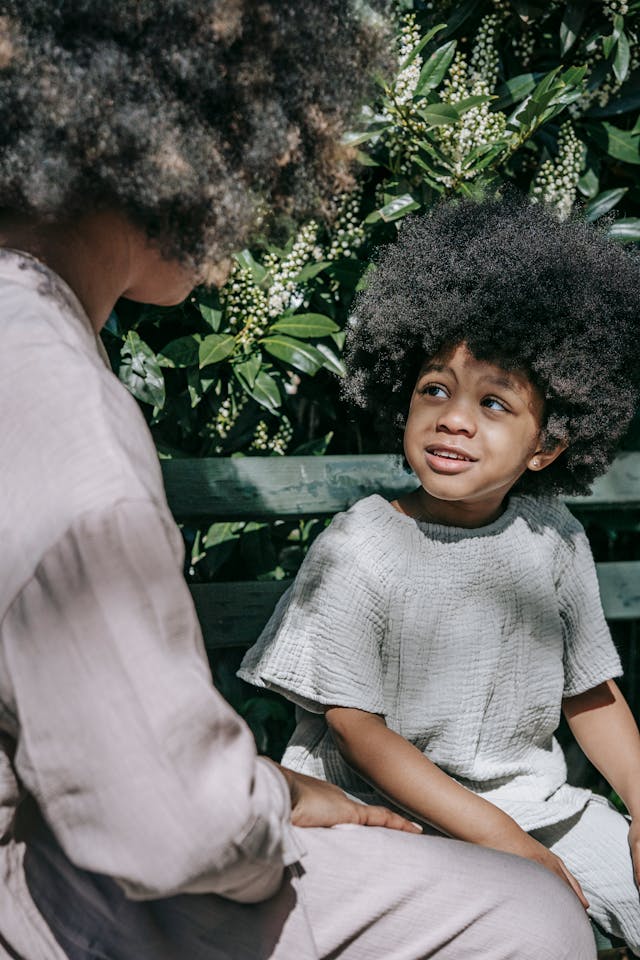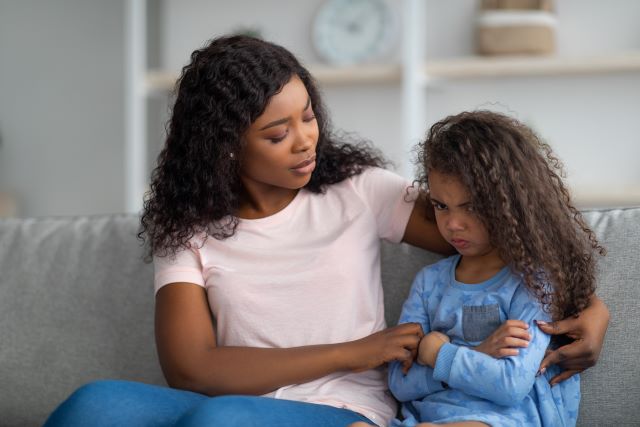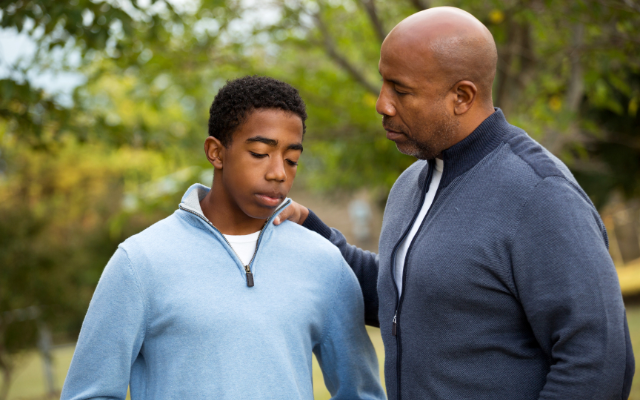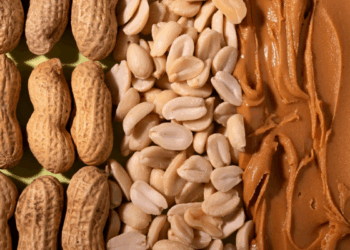Sometimes children test the waters before they give you the full story. While they are talking, there are some phrases and key language that parents should recognize and hone in on to dig deeper and start a conversation. According to the experts, here are four things kids say that parents should never ignore.

Statements about their identity
When your child says something about who they think that they really are, parents should listen. Dr. Michelle Forcier, a clinician at Folx Health, an LGBTQ+ health care provider, suggested in a HuffPost interview, that if your child comes to you saying things like:
- I want to talk to you
- I have something important to share
- Do you have time to …
- Would you love me no matter what?
- I think I might be ____
it is a must that you make time to listen up.
“The fact that your kids are coming to you with a struggle or issue that they’re facing really speaks volumes to your relationship. They brought up the topic because they feel safe with you,” Kristin Wilson, a licensed professional counselor with Newport Healthcare, added, telling the outlet.
“If you do not honor this gift by making time and room for it, your child may not choose to try and share again,” Dr. Forcier, concluded.
Statements About Feeling Low
If your child is struggling socially, or with their self-image/esteem, or simply feeling anxious, they may say things like:
- I hate myself
- I hate my body
- I’m dumb; I’m lonely
- I don’t want to go to school
- I’m scared
- I’m worried
again, it is time to dig deeper and listen up.
“I would encourage parents just to lean in to find out what might be the source of stress,” Chinwé Williams, a licensed professional counselor, told HuffPost.
Parents should ask open-ended questions and let the kids fill-in-the blank. Once they express themselves further, it may be something small or something that needs further attention such as bullying, etc.

Statements About Self-Harm
These statements are one’s that if said, a parent is not likely to miss; however, it is all about the reaction if your child says something like this to you:
- I want to die.
- I hate my life.
- I just don’t want to be here.
- I have no reason to live.
- I wish I’d never been born.
- Everyone would be better off without me.
- I wonder how many people would come to my funeral?
“Your child may not directly say that they want to hurt themselves, but they may say something like ‘I wish I didn’t have to deal with this’ or ‘My friends would be better off without me,’” Elisabeth Kane, a psychologist at Children’s Nebraska, told HuffPost.
Parents can sometimes shy away from discussing suicide and suicidal thoughts with their children; however, if a child is saying something like one of the above, the experts say that it is always better to discuss.
According to the American Association of Medical Colleges, Black youth, ages 5-12, were approximately two times more likely to die by suicide than their White counterparts. Black students also had a higher rate of suicide attempts when compared to their White and Hispanic counterparts.
Statements About Secretive or Potentially Inappropriate Relationships
Children tend to become more secretive about their friendships and/or relationships as they get older, but if something slips that sets off your parental alarm bells, then ask questions to find out more.
“If your child makes comments about having secrets with another individual or hints at an unusual relationship with them, especially with other adults, this could be a potential indication of harm and is important to follow up on,” Kane said.

Once your child approaches you with any of these statements. Do not ignore them. Instead, the experts suggest that parents:
- Take a deep breath and try to remain calm.
- Validate their feelings.
- Ask open-ended non-judgmental questions.
- Thank them for telling you.
- Consider your next steps.
Remember, you are a team and you can get through this together.







